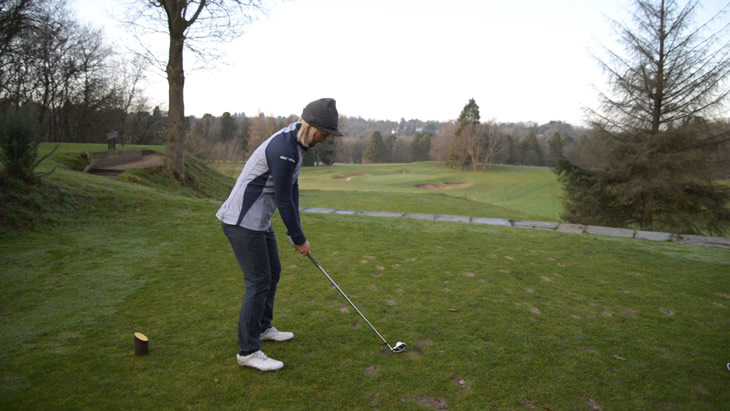If you have been following the world of golf equipment over the last few years, you will have noticed that TaylorMade's M-range of golf clubs has been one of the most successful on the market for amateur golfers and professionals alike.
But for 2020 the brand has decided to move on and start fresh. Step forward SIM.
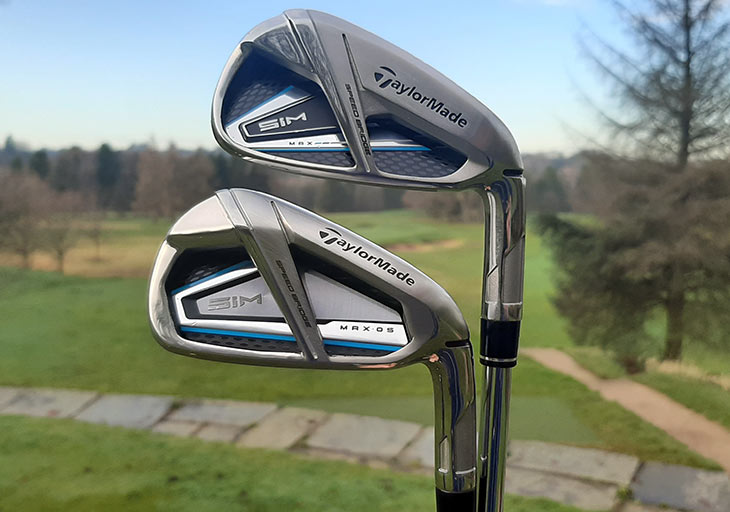
This stands for 'Speed in Motion' and essentially indicates that more focus is being placed on shaping and aerodynamics to achieve better results this time around, instead of previous models which focused on the face of the club to generate more ball speed at impact.
We have already seen the launch of the SIM Driver and Woods range, and now it is the time of the irons. This is where my first criticism comes in regarding the name. Changing the shape of a driver can be fairly simple and TaylorMade has clearly done that with the woods, but with an iron, this is much more challenging, so does the SIM name match up with the 'Shape in Motion' story?
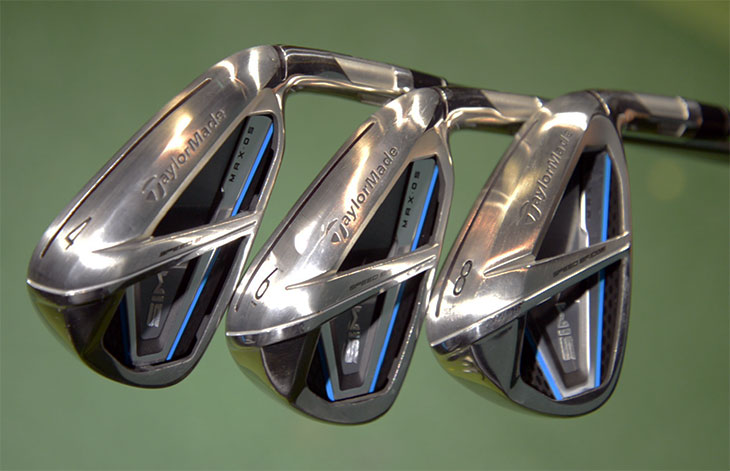
Joining the SIM Max iron for 2020 is an oversized (OS) model, which has been a relatively common feature of TaylorMade iron releases for a number of years. Seeking to provide even more forgiveness in a friendly game-improvement shape.
What's It All About?
The SIM Max OS iron is aimed at the higher handicap golfer, and features more offset whilst also promoting a higher launch for maximum distance and extreme forgiveness.
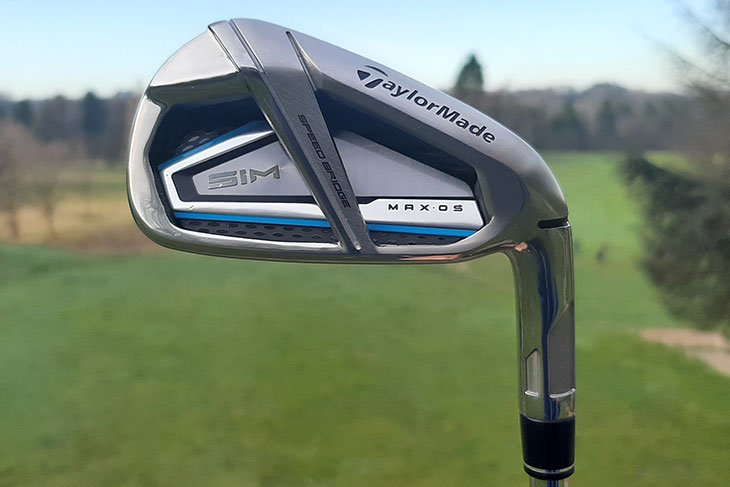
Such was the popularity of the original P790 iron and the 2019 update, which TaylorMade has found can suit golfers ranging from low single figure to high handicappers, TaylorMade decided that they didn't really need a replacement for the M5 as the P790 had that covered.
So, the SIM Max becomes the M6 replacement, and they've added in even more game-improvement with the Max OS.
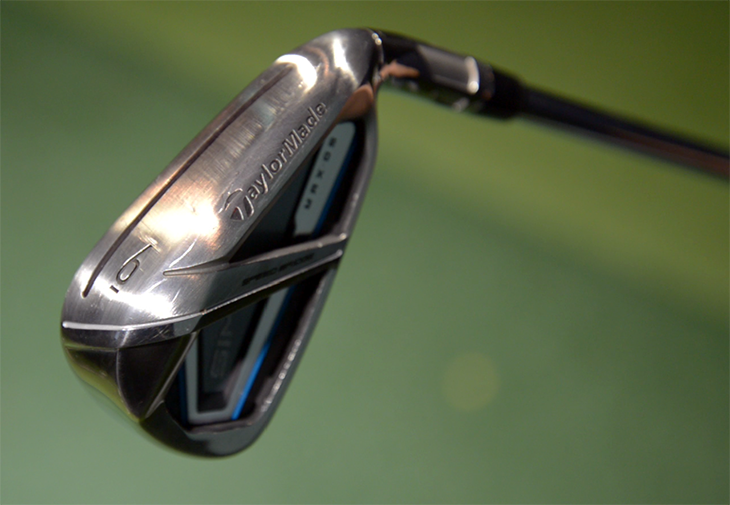
The SIM Max OS is equipped with all the same technology that powers the SIM Max, so if you want all the details then head over and read that review first here, before coming back to this one.
The real difference is that this technology has been packed into an oversized head with the OS, which also features a taller face for greater stability and a wider sole for more forgiving turf interaction.
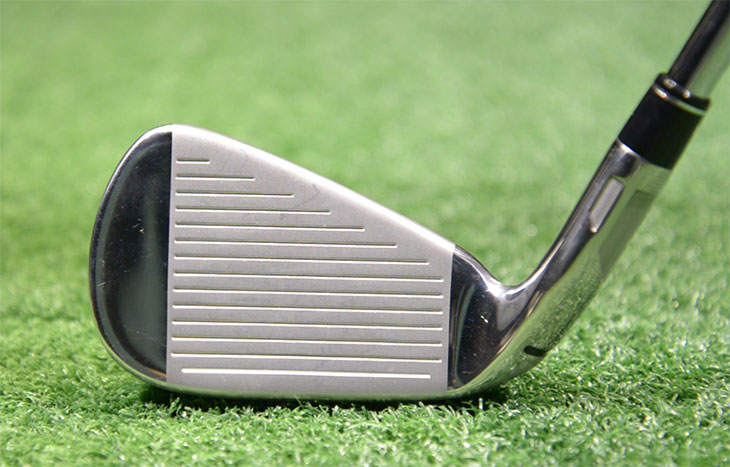
There's a new angled sole design, along with a lightweight fluted hosel and ultra-thin face, all of which are designed to move weight further down in the head giving golfers higher launch.
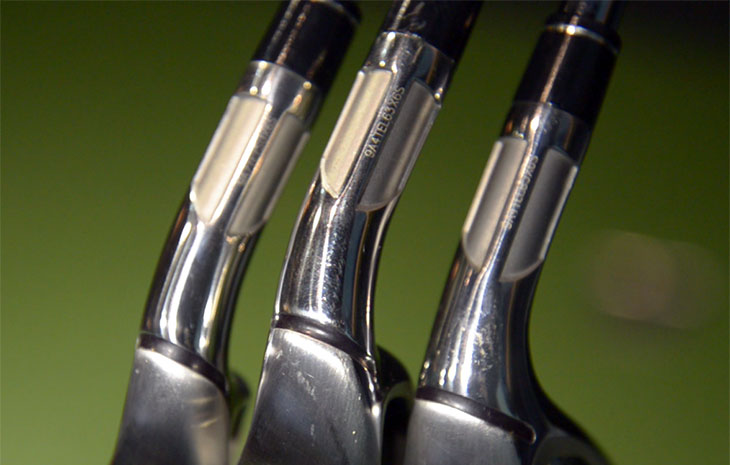
This creates a lower CG, which in turn promotes higher and more penetrating ball flights. Perfect if you struggle to get your irons up and going, particularly in the longer irons.
As expected, TaylorMade has made the lofts a little stronger on these irons (the 7 iron is 27°!) to stop the ball going too high, but this also serves to give you a little more distance than you'd be expecting from the number on the bottom. TaylorMade claim the Max OS is the longest iron in their lineup. Let's find out...
The Test
I took the Max OS Irons, along with the SIM Max, to Prestbury Golf Club for some on-course testing to see how these golf clubs reacted in real game environments. I wanted to discover whether the larger head and stronger lofts would give me a little more distance and provide more forgiveness on some thick, wet winter lies.

I then headed indoors to The Range Manchester to hit the irons on the launch monitor and see what kind of numbers they had produced when compared to the SIM Max irons. TaylorMade have been making some bold claims about ball speed and feel, so a good old-fashioned range session was the perfect way to see whether the Max OS could live up to the hype.
TaylorMade SIM Max OS Irons Review
At address, the topline of the OS Iron is pretty similar to the Max which I think is a bonus, as it doesn't give the impression that you're having to use a big chunky iron. It's a super game-improvement head size, with a game-improvement top line.
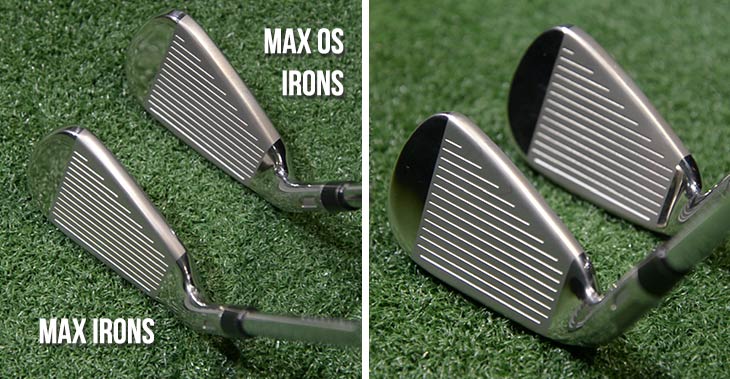
There is a little bit of offset there, especially in the longer irons, but looks-wise this doesn't offend me too much because I know that it will benefit those golfers who are suited to this iron, so it should really be expected. Performance-wise... we'll get to that in a moment.
The over-sized head construction results in a larger sweet spot, which gives you more forgiveness across the entire face. But once again this wasn’t a big shock like it used to be looking down on TaylorMade's biggest game-improvement iron. Although you can start to see more of the bulk in the back of the head as you move into the longer irons.
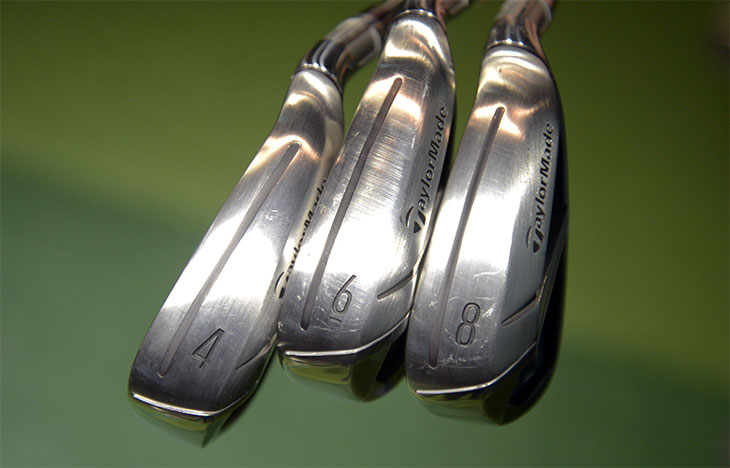
The sole is a little thicker than in the SIM Max iron too, but for golfers who struggle with ball-striking this may actually help to inspire a little more confidence.
When hitting the irons there was a different sound to the Max, although it was clearly better than last year's M5 and M6 models. The Max produced a 'thud' sound which was almost like a forged iron. The Max OS was slightly more clicky, perhaps due to the larger head, but an improvement from TaylorMade's 2019 offerings nonetheless.
TaylorMade's new ECHO Damping Technology has clearly worked here and appears to be a bit of a trend among manufacturers searching for a forged feel without losing distance.
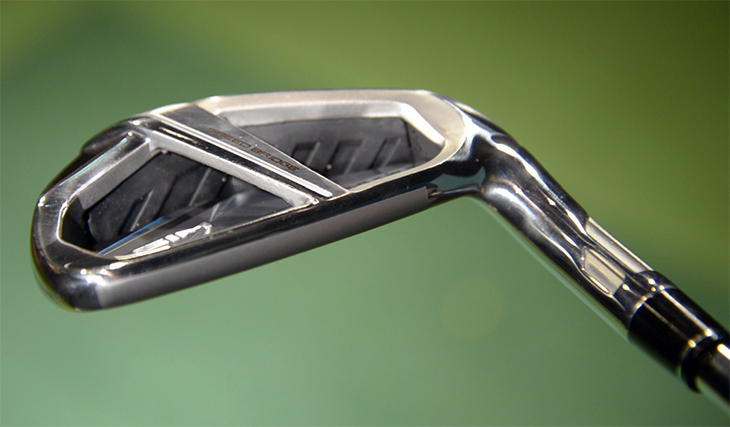
Some golfers probably aren't too bothered about the sound of an iron anyway, and would rather choose on performance alone, but if it's something that does factor into your decision-making then you should be pretty happy with the SIM range.
Following my session at the Range using the Foresight GC2 I discovered that the Max OS was creating a little more ball speed than both the M5 iron and the standard Max, up at 106 mph. This also equated to a couple of extra yards of carry as well, with my 6 iron averaging at 150 yards and a couple jumping out towards 160 too. This may seem a small distance gain, but with an iron - trust me it's a lot.
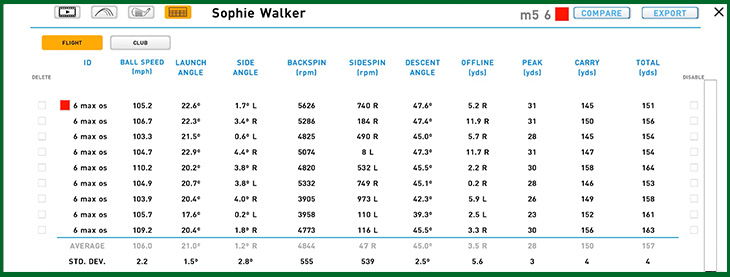
TaylorMade would say that this is due to the Speed Pocket and Speed Bridge technology that they have carried over but redesigned slightly from the M5 and M6 irons. However, when considering the inconsistencies of strike from shot-to-shot for the type of golfer these irons are aimed at - that is what will make more difference ultimately anyway, so its honours even in that regard.
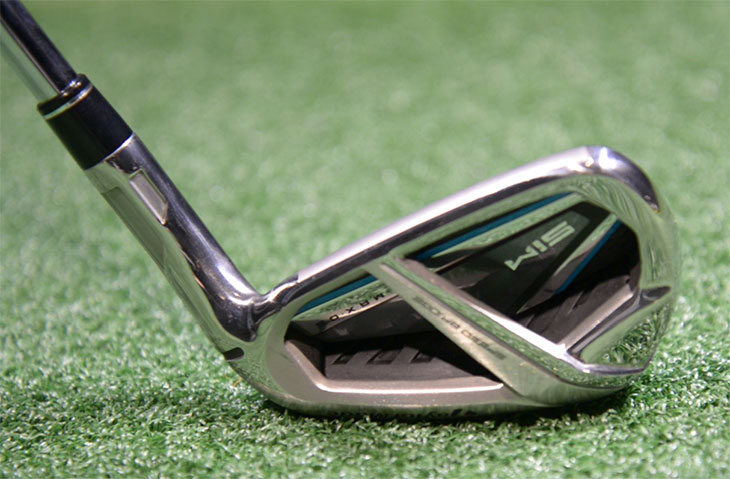
Whilst the launch angle and peak height were pretty much identical for the irons I tested, the spin rate was actually a little higher with the OS compared to the SIM Max, probably due to that slight increase in ball speed.
Out on the course these irons made me really take notice, as they launched higher than the Max and were consistently carrying 5-10 yards further when I was hitting into the greens. This was particularly evident when hitting out of the rough at Prestbury where I could feel the bigger head helping with ease of launch at impact.
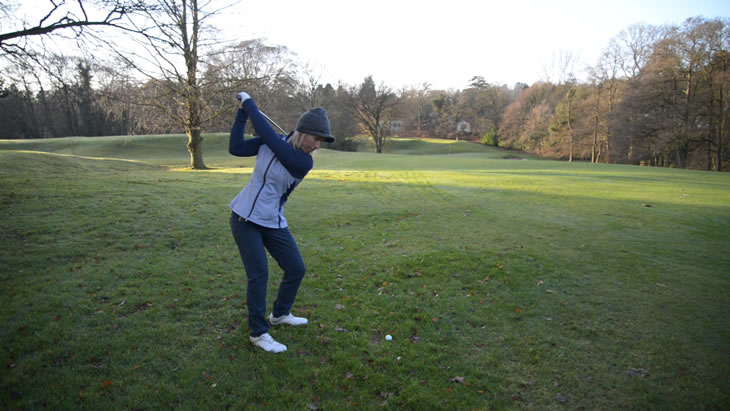
I hit the 4 iron from a down slope and it flew beautifully. Despite the fact that the loft is set at 18°, which is more like a traditional 3 iron, I didn’t need to try and launch the ball, the club did it for me. This was impressive.
Whilst I mentioned earlier that the offset look didn't really perturb me at address, when it came to actually hitting shots on the course I found that I actually struggled a little to hit the draw. I found myself aiming too far to the right to try and compensate for the draw that I was expecting and so my miss ended up being a little to the right. This is something to bear in mind if you're moving from game-improvement irons to super game-improvement.
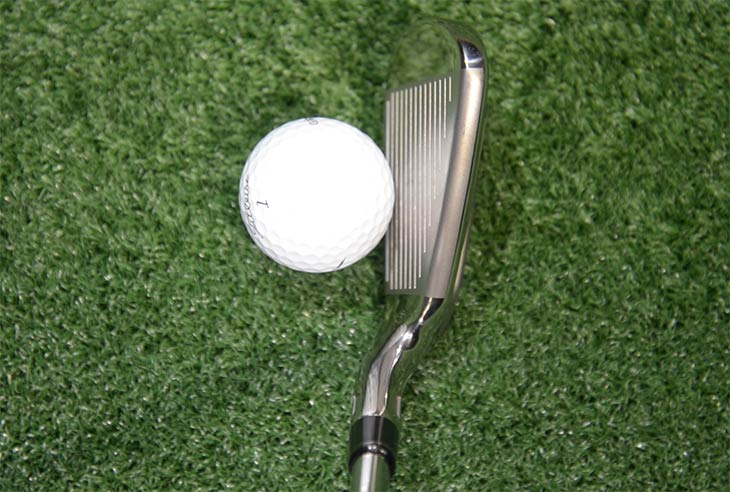
If you do struggle with over-fading the ball then you shouldn't need to change much in order to see some benefit, but it just ended up being a little uncomfortable for me at times.
TaylorMade SIM Max OS Irons Verdict
In summary, I felt that SIM Max OS irons were noticeably longer than the Max and M5 irons, and this was all whilst still being good-looking enough that the size wasn't too off-putting. Although at The Range the numbers were only marginally better, the difference was much more evident outside.
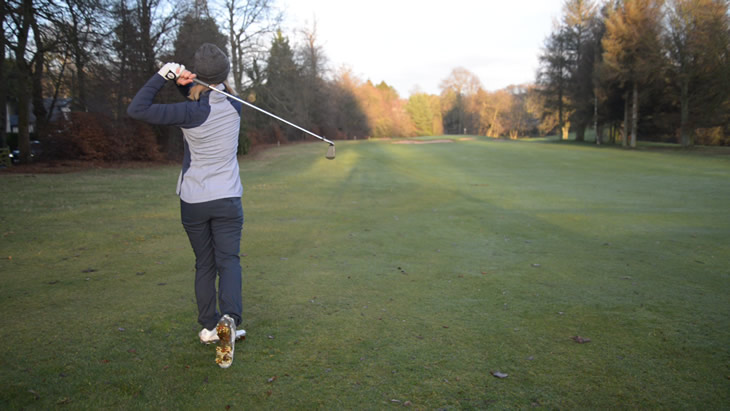
This is important too, because we want it to perform better from grass and imperfect lies than a pure mat. I’m so glad I tested outdoors as this has made my review stronger and I have discovered more pro’s to these irons. It's a good lesson for anybody who is thinking of changing their irons - don't just test on the range!
The ball speed was up in these irons slightly, but I can’t say for sure that it was due to the Speed Pocket and Speed Bridge, though they did add stability to the head at impact. I’d have to do more testing to try and prove this absolutely. The ECHO Damping has definitely improved the sound of irons of this size when compared with last year's models.

Ok, it may not be exactly the same as a forged iron but the difference wouldn’t be enough to impact a higher-handicapper's decision to pick feel over all the other perks.
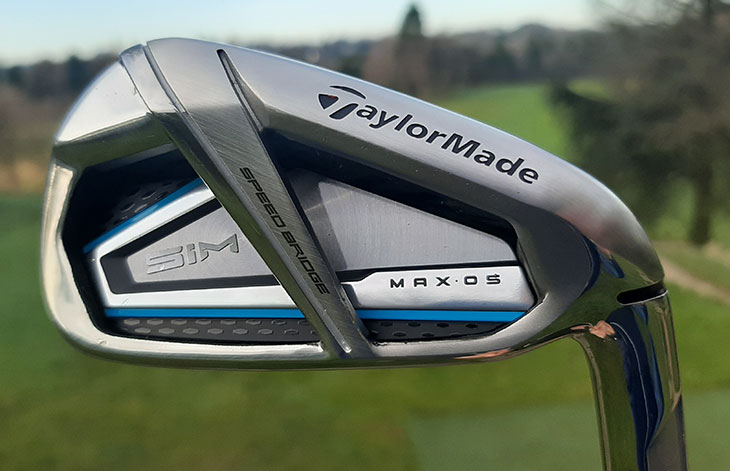
SIM Max OS is TaylorMade's longest iron of 2020 and the sound and feel is very much improved. If you're in need of extra distance and forgiveness, maybe you can have your cake and eat it too!
Would I Use It?
Personally I wouldn't, because I don't think I need game-improvement irons of this size and I don't think they'd suit me. However if you are a golfer that needs some help with their iron play, you can now play with clubs that sound closer to a forged iron, whilst still having the help you need to improve your strike.
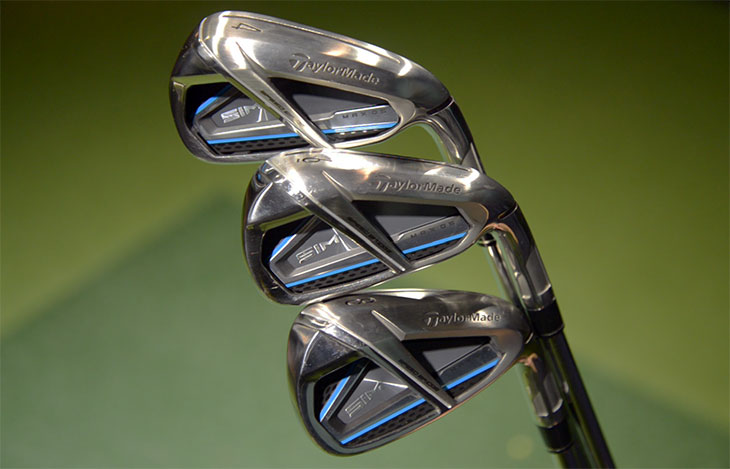
For higher handicappers I would recommend these irons over the SIM Max as the on-course yardage difference is noticeable, especially with the 2019 P790’s catering for more golfers.
If you are a pretty confident iron player then go for the P790. If you need ultimate distance and forgiveness, then look no further than the SIM Max OS. But where does that leave the SIM Max?
Pros
Great distance
Extreme forgiveness levels
High, easy launch
Genuine improvement on last year's model
Price point is lower than last year
Cons
